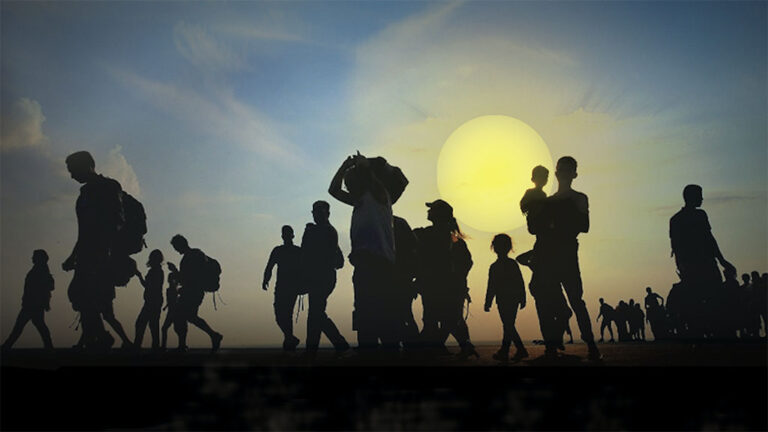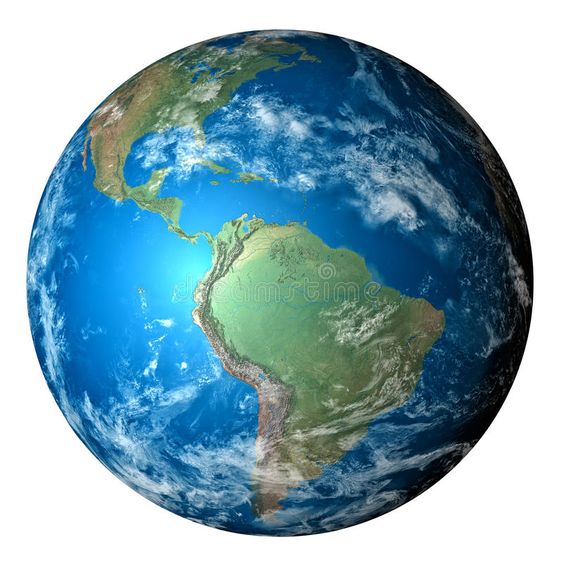
A perfect storm of environmental, economic and demographic factors are combing with increased international instability to drive millions of people from the developing to the developed world.
By Tom Arms
The world is sitting on a migration and demographic time bomb. A perfect storm of environmental, economic and demographic factors are combing with increased international instability to drive millions of people from the developing to the developed world.
An internationally coordinated response is required to deal with the problem that will not go away. It will just become worse. Instead growing xenophobia is constructing physical and bureaucratic dams that must eventually burst.
Ironically, the two sides of the cultural and geographic fence have complementary problems. There is a shortage of workers in the xenophobic developed world and a surplus in the developing world. Birth rates in Europe, the US and Japan are either failing to replace those who die or—at best—leading to a no population growth scenario.
Low population is accompanied by an ageing citizenry. The median age in most of the world’s rich countries is between 40 and 50. This puts increased pressure on health and social care services, pensions and young workers who have to support their elders.
The developed world is also bordering on, or actually suffering, labor shortages. If their countries’ fail to grow by increased birth rates than they must recruit immigrants in order to maintain productivity levels that can support ageing populations.
In contrast, improved healthcare has dramatically cut the infant mortality rates in the developing world. This means that the median age in most of Latin America is 27. In Africa it is 18. In the case of Niger the median age is 14.8 years. The underdeveloped economies of these countries are incapable of supporting their rapidly growing populations. Their young people are heading north to survive.
To complicate matters further climate change and war is increasing the number of displaced persons in the world. In 2016 there were 10.6 million DPs. According to the UN High Commissioner for Refugees the figure grew to 84 million in 2021, and that was before the Afghan crisis added several million more to the depressing and worrying total.
The migration time bomb is not just a North-South problem. It is also a serious issue within the European Union. The Schengen Agreement which allows free travel within the EU has joined forces with a low birth rate to create a de-population crisis in Southern and Eastern Europe. The Bulgarian population, for instance, is projected to shrink by 22.5 percent by 2050. The same story is repeated throughout the region with projected population shrinkage ranging from 10 percent to 23 percent. Ironically, some of the most xenophobic countries are expected to shrink the most. So far, the leaders of those countries have responded to the crisis by exhorting women to have more babies. It is not working.
One of the countries, most badly affected by the demographic/migration time bomb is Japan. They are doing something about it. Historically, the Japanese have been regarded as one of the world’s most xenophobic people who prided themselves on their superior culture and homogenous population. Economic realities have forced a change. With 28 percent of the population over 65, unemployment levels at a mere three percent and the Japanese economy stagnant for several years; the government has been forced to recruit foreign labor to boost productivity.
Nearly three million foreigners now live in Japan out of a population of 126 million. That is up from 1 million in 1990. Ten percent of Tokyo’s population is now foreign-born and the government plans to bring in 65,000 immigrants a year between now and 2025.
Surprisingly this program has secured almost total support from the media and the wider population. This is probably because it has been sold as a policy of social and economic necessity by the Liberal Democratic Party—the long-ruling Japanese conservatives who would normally oppose immigration. The LDP has successfully argued that the immigration barriers were lowered not to change Japanese society, but to sustain it.
- After a week of Ukrainian talks the question is whether Vladimir Putin is using negotiations to avoid war or create a pretext to start one. The communiques emerging from Geneva, Brussels and Vienna shed little light on the subject. They are peppered with insubstantial diplomatese phrases such as “frank,” “friendly” and “constructive.” Off the record, journalists are being told that chief US negotiator Wendy Sherman is offering to widen the talks with suggested discussions on missile deployments and other issues. The US is clearly trying to drag out talks in the hopes that protracted jaw will lead to reduced tensions. But on one issue the Americans and their NATO allies appear to be standing firm: They will not agree to a legally binding commitment to block Ukraine (and Georgia) from NATO membership. Putin has made it clear that Ukrainian enrolment in NATO is unacceptable. In fact, Putin has compared it to the 1962 Cuban missile crisis. The Russian leader has also denounced America’s strategic arms policies, blaming them from withdrawing from the ABM Treaty (true), INF (not true) and the Open Skies Agreement (not true). However, Putin is also adamant that he will not be bogged down in the “swamp” of protracted negotiations. His concern over lengthy talks is at least partly related to the fact that if he doesn’t move soon Russian tanks will become mired in the mud of a Ukrainian spring. If Putin does invade, Biden has threatened sanctions “like none he has ever seen.” These are likely to include locking Russia out of the international banking system and blocking the Nordstream2 gas pipeline.
- It now appears that the uprising in Kazakhstan was more of an internal power struggle than a popular uprising. In the wake of the violence the head of, Kazakhstan’s security services, Karim Masimov, has been sacked and charged with treason. In addition, 81-year-old former president Nursultan Nazarbayev has been removed from the chairmanship of the nation’s powerful Security Council and his family has dropped from public view. Nazabaryev, who was an autocratic president for 25 years, hand-picked Kassim-Zhomart Tokayev as his successor. It had been assumed that the ex-president was still pulling the puppet strings and grooming his daughter for the presidency. Now it seems that the puppet has cut the strings and turned on his master. He also appears to have the blessing of Russia’s Vladimir Putin who still holds considerable sway in the former Soviet republic. Twenty-five percent of Kazakhstan’s 18 million citizens are ethnic Russian. Its gas pipelines all run to Russia and 2,000 Russian troops were called in by Tokayev to protect Russian assets when the revolt started. After killing 164 protesters, arresting 10,000 and possibly neutering the Nazarbayev family and their supporters, Tokayev appears to be firmly back in control and the Russian troops are back in their barracks.
- It is reassuring to note that the blindfold over the eyes of Lady Justice (aka Justitia) appears to remain in place in at least some countries. Britain, Germany, Australia and America (acting with the UK) have this week shown that the greatest in the land are subject to the same laws as everyone else no matter how high they climb the greasy pole of ambition. In the case of the Germans it was a matter of “you can run but you can’t hide.” This week a Koblenz court sentenced former Syrian Colonel Anwar Raslan to life imprisonment for supervising the torture of more than 4,000 prisoners in war-torn Syria. He was found guilty of crimes against humanity under the UN’s Universal Jurisdiction rules. This coming week a Syrian doctor also appears before a German court. Austria, Norway, Sweden and France have also taken legal steps against former members of the Syrian regime who have sought refuge in their countries. Australia has proven that rules apply to tennis players off the court as well as on. The country’s immigration minister, Alex Hawke, has overturned a court decision and ordered the deportation of the world’s number one tennis player—Novak Djokovic—who doubles as a prominent anti-vaxxer. Unfortunately for Djokovic, Australia has some of the world’s toughest rules on covid vaccinations and entry into the country. In Britain, Prime Minister Boris Johnson appears to be heading for the exit door at 10 Downing Street as journalists line up to reveal a succession of Downing Street parties held during covid lockdowns that he ordered. The latest was the day before the funeral of the Duke of Edinburgh when the country was in national mourning. Boris has made what he calls a “heartfelt” apology but the press and many of his colleagues think it was half-hearted. Finally the highest in the land (almost) has also been subjected to the rules. Prince Andrew, ninth in succession to the British throne, has been stripped of his titles and military ranks. He will now appear as a private citizen in a US civil court where he will be accused of sexually abusing Ms. Victoria Giuffre in 2001. A delighted Ms. Giuffre said: “My goal has always been to show that the rich and famous are not above the law.”
- Sri Lanka is in deep financial trouble. This creates problems for China, India, Japan, Russia, the US and several other countries. Sri Lanka’s problems started with the refusal of President Gotabaya Rajapaksa to accept IMF conditions for a restructuring of the island nation’s debts. In desperate need of cash, the Sri Lankan president turned to China for replacement help. Since then a combination of the pandemic, poor investment decisions and a drop in tourism has worsened Sri Lanka’s economic situation. Its foreign currency reserves have dwindled to almost nil. Inflation is 12 percent. A $500m debt repayment is due on Tuesday (18 Jan). Another $5.4 billion has to be repaid by the end of the year. Enter China which is Sri Lanka’s fourth biggest creditor after Japan, the IMF and Asian Development Bank. Sri Lanka has asked Beijing to restructure its loans. It is not the first time that the Sri Lankans have gone cap in hand to the Chinese. In 2017 they swapped a proportion of their equity in the Sri Lankan port of Hambantota in a debt restructuring deal. The Chinese now own 70 percent of the equity in the port on the south eastern tip of Sri Lanka. The move set alarm bells ringing in Tokyo, Washington, Canberra and Delhi where it was feared that the Chinese might use their equity position to place naval forces in the Indian Ocean. The “Quad” started eyeing the facilities at Trincomalee, the region’s largest deep-water facility. So far, however, the Chinese have kept their presence in Sri Lanka on a strict commercial footing. But they will want something in return for helping the Sri Lankans out of their current financial mess. What that may be is what is causing sleepless nights elsewhere.
[author title=”Tom Arms ” image=”https://sindhcourier.com/wp-content/uploads/2021/05/Tom-Arms-Journalist-Sindh-Courier.jpg”]Tom Arms is Foreign Editor of Liberal Democrat Voice and author of “America Made in Britain.”[/author]
